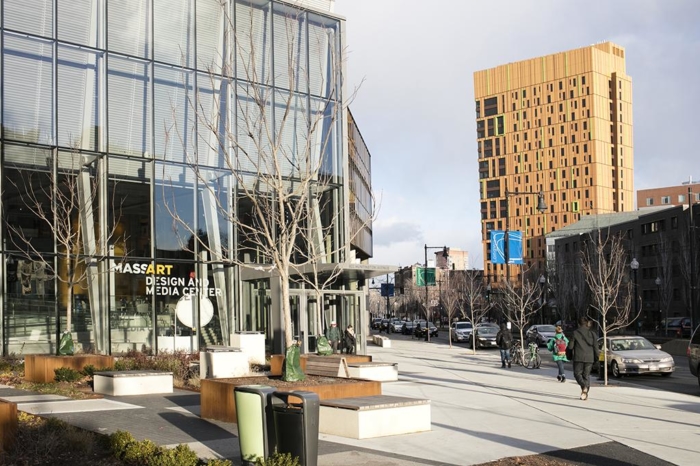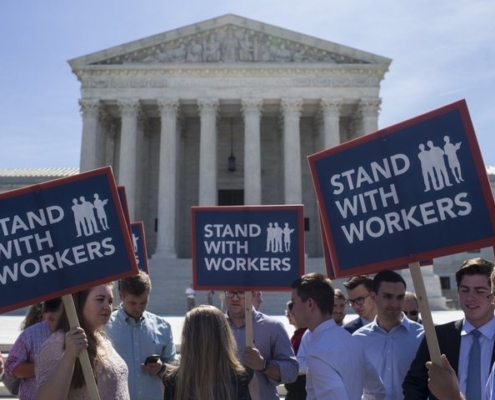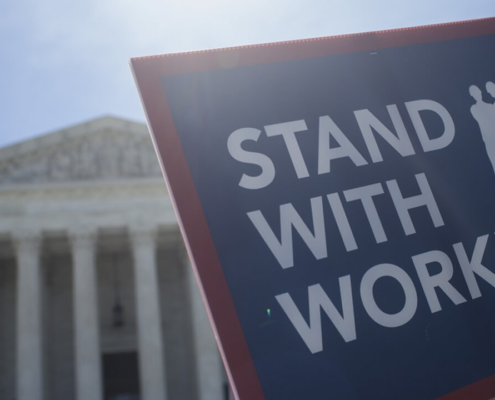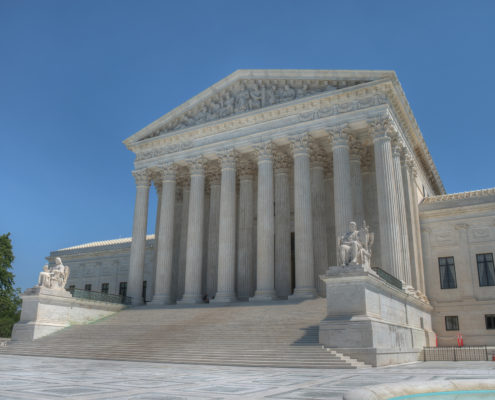Majority of Dues Paid by Mass. Public Higher Education Faculty Goes to State, National Union Affiliates
At state colleges and universities, portion that stays on campus as low as 1 percent
BOSTON – Only a small share of annual union dues paid by faculty at the University of Massachusetts, state colleges and universities and community college campuses that make dues data publicly available remain with local union affiliates to cover the costs of collective bargaining and grievance procedures, according to a new study published by Pioneer Institute.
“Last year’s U.S. Supreme Court ruling in the Janus case gives public employees the right to make informed decisions about joining or remaining in the union,” said Pioneer Institute executive director Jim Stergios. “As faculty make determinations about the value of union membership, it’s important for them to know where their dues payments are going.”
In “Where Do Teacher Union Dues Go? Public Higher Education in Massachusetts,” author Rebekah Paxton finds that at UMass Amherst, 27 percent of total dues money remains with the campus affiliate, while the amount is 29 percent for UMass Boston. The rest goes to the Massachusetts Teachers Association (MTA) and its parent, the National Education Association (NEA).
For the Massachusetts Community College Council, which represents all 15 community college campuses, 30 percent of dues revenue stayed local, while 70 percent went to the MTA and NEA.
Dues paid by many state college and university faculty members extend to cover an additional tier. The Massachusetts State College Association (MSCA) represents faculty on nine state college and university campuses. In all, 20 percent of dues payments go to MSCA.
But only a minority of the 20 percent remains with MSCA campus chapters. The amount ranges from 1 percent of total dues at Framingham State University to 9 percent at Salem State University.
The study follows one finding that only about 16 percent of annual dues paid by union members at the 19 Massachusetts public school districts that make dues data available remained with the local union affiliate.
About the Author
Rebekah Paxton is a research assistant at Pioneer Institute. She first joined Pioneer in 2017 as a Roger Perry intern, writing about various transparency issues within the Commonwealth. Since then, she has worked on various research projects in state finance, public policy, and labor relations. She recently earned an M.A. in Political Science and a B.A. in Political Science and Economics, from Boston University, where she graduated summa cum laude.
About Pioneer
Pioneer Institute is an independent, non-partisan, privately funded research organization that seeks to improve the quality of life in Massachusetts through civic discourse and intellectually rigorous, data-driven public policy solutions based on free market principles, individual liberty and responsibility, and the ideal of effective, limited and accountable government.
Contact PioneerLegal
Related Posts












